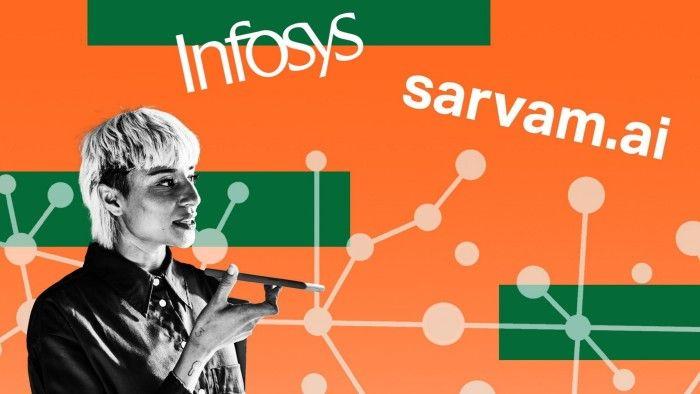India's Ambitious Plan to Democratize AI: Balancing Innovation and Regulation
2 Sources
2 Sources
[1]
Democratising AI: GoI's role in regulation, innovation is key
Democratisation of AI is not free of internal conflict. This arises from how stakeholders approach democratisation of use, development, profits and governance. Any democratisation effort that works on AI technology or its market derives value from aligning with the interests of those who will be affected. The work must begin with the democratisation of governance and the rest of the processes will evolve as a corollary. The downsides of a new tech need to be protected through government intervention so that dispersal, development and dividends are not inimically affected.India's growing role in AI applications positions it as a key player in democratising the technology, as IT minister Ashwini Vaishnaw highlighted at the ET Startup Awards last week. Any approach that seeks to make AI accessible to all, including individuals and organisations that do not have the technical capabilities to run AI applications, would have to set out progressive benchmarks on intellectual property rights. The idea is to create a universal ability to experiment with AI programming. The constraints are privacy, confidentiality and competitiveness. The regulatory framework around these constraints guides the openness of AI and pushes the tech frontier outward by driving down costs. Governments have a critical role in shaping the development of AI and India leads by example in affordable access, ensuring abstraction and enabling control of stack elements. Yet, democratisation of AI is not free of internal conflict. This arises from how stakeholders approach democratisation of use, development, profits and governance. Any democratisation effort that works on AI technology or its market derives value from aligning with the interests of those who will be affected. The work must begin with the democratisation of governance and the rest of the processes will evolve as a corollary. The downsides of a new tech need to be protected through government intervention so that dispersal, development and dividends are not inimically affected. Broadly, AI is expected to increase the world's consumer surplus. How this surplus is divided among those with and without access to tech is a job for governments. India's approach has been to harness any available technology locally while redistributing gains to the deprived. This is as good an approach to AI governance as it gets. Putting an emerging tech to work towards creating a more inclusive society should be the guiding principle for AI democratisation across the world.
[2]
India Plans 'Democratised' AI, on Track to Provide to World
India is becoming the artificial intelligence (AI) application service provider to the world, Union minister for IT, railways and information & broadcasting Ashwini Vaishnaw told delegates at The Economic Times Startup Awards (ETSA) in Bengaluru on Saturday, underscoring the industry's increasingly visible role in helping negotiate challenges as diverse and complex as drug discovery and climate change.India is becoming the artificial intelligence (AI) application service provider to the world, Union minister for IT, railways and information & broadcasting Ashwini Vaishnaw told delegates at The Economic Times Startup Awards (ETSA) in Bengaluru on Saturday, underscoring the industry's increasingly visible role in helping negotiate challenges as diverse and complex as drug discovery and climate change. "A large number of applications are coming up from the industry in health, climate tech, drug discovery and industrial applications," Vaishnaw said at the 10th edition of ETSA. All sections of society would be able to benefit from the IndiaAI Mission, the Centre's ₹10,000-crore masterplan to promote the tech, he said. "Our approach in the AI mission is democratising technology. The Prime Minister has mandated the technology be accessible to all the startups, academia, researchers and students. It cannot be monopolised by a handful," the minister said. Public investments create an infrastructure that can be used by a number of people, he said. In a fireside chat with The Economic Times executive editor Sruthijith KK, Vaishnaw added that the government would make sure technology innovation would not be impacted by AI regulations, allaying a key concern from multiple players in the sector. "We have two models of AI regulation - the US and the European. I honestly think some countries have put too much regulation on AI. I don't think that is the right way to go," said the minister. "The way we created structures in our data privacy and telecom laws, we allowed the space for innovation to flourish, while we made sure the harms are fully controlled. That will be the approach we will adopt in AI regulation." Vaishnaw said India could adopt a cost-efficient approach to creating AI infrastructure. "There is a view that creating a new model would require $50-60 billion capital. But some people have a different approach to building (that) with less capital," he pointed out. Referring to a recent roundtable of Prime Minister Narendra Modi and top technology industry CEOs in New York, the minister said three chief executives had said they haven't seen this kind of enthusiasm for any country in the last 35-40 years. He reiterated that the Idaho-based Micron Technology will roll out the first made-in-India memory chips by early 2025. He also gave a status check about the progress of other chip packaging facilities. "The CG Power (Sanand) facility should also come up very fast. Construction work is going on. In Tata's ATMP facility in Assam, construction work is going on very well," he said. On India's first chip fabrication unit in Gujarat's Dholera, Vaishnaw said the technology agreement between Tata Electronics and Taiwan's Powerchip Semiconductor Manufacturing Corp was signed a few weeks ago. "What we are seeing is the ecosystem for about 200-odd players who must come in, their entire initial hesitance... and the thoughts they had have all got converted into -- this is the next big semiconductor destination. That is something they feel comfortable about," Vaishnaw said. The minister said the country currently has $120 billion worth of electronics manufacturing and that the government is now focused on bringing in electronic components manufacturing. Eight sub-modules where we can have large-scale production have been identified, he said. In his welcome address, Times Internet vice-chairman Satyan Gajwani said, "It's all of you gathered here today who help mentor and invest in each other, and build great companies together. It's this spirit of entrepreneurship that this city exemplifies. In bringing attention and recognition to this ecosystem, I think the ET Startup Awards has played a small role in building the cycle of paying it forward."
Share
Share
Copy Link
India aims to become a global AI application service provider, focusing on democratizing technology while balancing innovation and regulation. The government's approach emphasizes accessibility, affordability, and responsible development of AI.

India's Vision for AI Democratization
India is positioning itself as a key player in the global artificial intelligence (AI) landscape, with ambitious plans to become an AI application service provider to the world. Union Minister for IT, Railways, and Information & Broadcasting, Ashwini Vaishnaw, highlighted this vision at The Economic Times Startup Awards (ETSA) in Bengaluru
1
. The country's approach focuses on democratizing AI technology, making it accessible to startups, academia, researchers, and students, rather than allowing it to be monopolized by a select few.The IndiaAI Mission
At the core of India's AI strategy is the IndiaAI Mission, a ₹10,000-crore masterplan aimed at promoting AI technology
1
. This initiative seeks to create an infrastructure that can be utilized by a wide range of stakeholders, fostering innovation and development across various sectors. The government's commitment to public investment in AI is expected to drive advancements in health, climate tech, drug discovery, and industrial applications.Balancing Innovation and Regulation
A key aspect of India's AI strategy is striking a balance between innovation and regulation. Minister Vaishnaw emphasized that the government would ensure that technological innovation is not hindered by AI regulations
1
. He contrasted India's approach with that of other countries, suggesting that some nations may have implemented excessive regulations on AI. India aims to adopt a model similar to its data privacy and telecom laws, which allow innovation to flourish while controlling potential harms.Democratization Challenges
The process of democratizing AI is not without its challenges. As highlighted in an editorial, there are internal conflicts arising from different stakeholder approaches to democratizing use, development, profits, and governance
2
. The key to successful democratization lies in aligning efforts with the interests of those affected by AI technology. The editorial suggests that democratization of governance should be the starting point, with other processes evolving as a corollary.Related Stories
Government's Role in AI Development
The Indian government recognizes its critical role in shaping AI development. It aims to lead by example in providing affordable access, ensuring abstraction, and enabling control of stack elements
2
. The regulatory framework around privacy, confidentiality, and competitiveness is expected to guide the openness of AI and drive down costs, pushing the technological frontier outward.Economic Impact and Global Positioning
AI is anticipated to increase the world's consumer surplus, and the Indian government's approach focuses on harnessing available technology locally while redistributing gains to the deprived
2
. This strategy aligns with the broader goal of creating a more inclusive society through AI democratization. India's growing role in AI applications and its cost-efficient approach to creating AI infrastructure position it as a significant player in the global AI landscape1
.References
Summarized by
Navi
Related Stories
India's AI Ambitions: Balancing Innovation, Accessibility, and Cultural Relevance
31 Jan 2025•Technology

India AI push at Davos 2026: Infrastructure, sovereignty and real-world use cases take center stage
21 Jan 2026•Policy and Regulation

India's Strategic Push to Catch Up in the Global AI Race
16 Apr 2025•Technology

Recent Highlights
1
SpaceX acquires xAI as Elon Musk bets big on 1 million satellite constellation for orbital AI
Technology

2
French Police Raid X Office as Grok Investigation Expands to Include Holocaust Denial Claims
Policy and Regulation

3
UNICEF Demands Global Crackdown on AI-Generated Child Abuse as 1.2 Million Kids Victimized
Policy and Regulation





